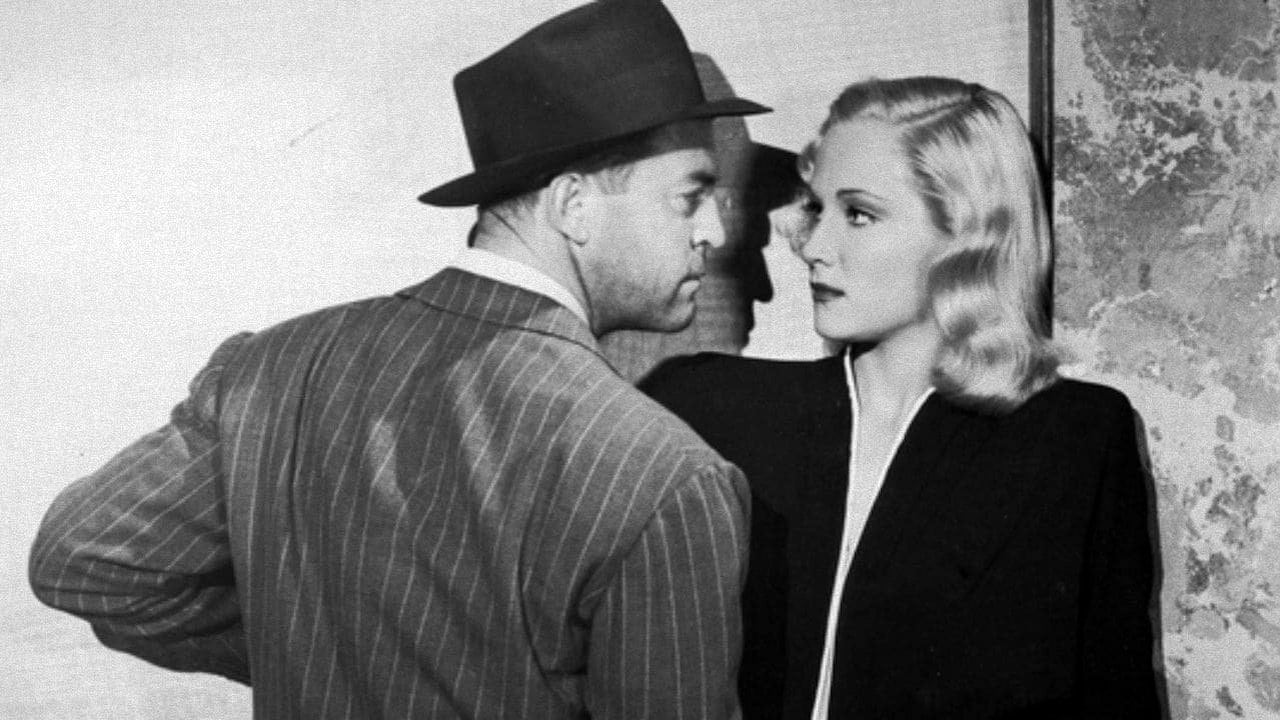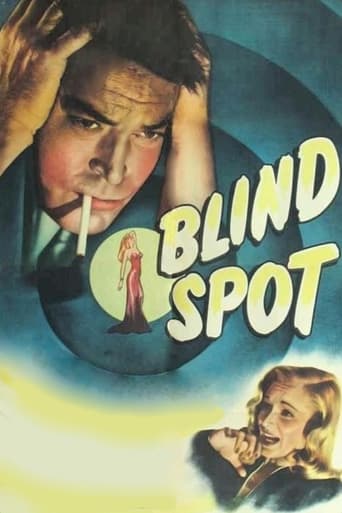



Too many fans seem to be blown away
Far from Perfect, Far from Terrible
A film with more than the usual spoiler issues. Talking about it in any detail feels akin to handing you a gift-wrapped present and saying, "I hope you like it -- It's a thriller about a diabolical secret experiment."
View MoreIt is neither dumb nor smart enough to be fun, and spends way too much time with its boring human characters.
View MoreA neat set up: Chester Morris is an author of "serious" books. He hates his publisher, but is forced to go to him and ask for an advance. Having worked up his nerve by downing several drinks, Morris arrives at the office to find the publisher in conference with a popular mystery writer—whom Morris promptly insults as a writer of pap. Writing a mystery is simple work, Morris drunkenly insists he could invent a murder plot in a snap. A murder in a locked room.Some hours later, the publisher is found dead .murdered in his locked office. And Morris can't quite remember two things—the locked room murder plot he had invented, and whether or not he actually did the murder. He sets about investigating—but it's not easy with the police figuring him as the prime suspect.Morris is very good, especially after his character sobers up and we can watch him piece together events and the motives and actions of other characters. (During the first fifteen minutes his slurring and stumbling get a bit tiresome .as drunk people tend to do.)Steven Geray is fun as the rival author; his thick accent adds to his vaguely exotic and sinister aura. Constance Dowling is hard and slick as a possibly dangerous blonde—the publisher's secretary who eventually teams up with Morris. She may be seeking the truth; she may be running away from it. Both the mystery writer and the secretary have their own reasons for wishing that publisher ill.The film develops some great situations—like when Morris and Dowling meet up in his dark basement apartment, each thinking the other committed the murder. Some great camera shots: she steps slowly from the shadows, pausing where all is dark except her ankles in the light. Some cheesy but undeniably fun dialog: thinking she's trying to fool him with romance, Chester tells the girl, "You've got the wrong chump. Violins hurt my ears. And when the temperature's up I drink a bottle of beer ." An excellent B mystery that moves fast, contains plenty of suspense and never takes itself more seriously than a murder mystery should."Do you really think I killed Small?" – A pause, then a hard kiss, finally an answer.... "Yes."
View MoreChester Morris had a full and varied screen career - he was the consummate film actor. He tried his hand at most parts and always succeeded. In 1930 he played opposite 3 very different actresses - Alice White ("Playing Around"), Norma Shearer ("The Divorcée") and Una Merkel ("The Cat Creeps") and enhanced all three. Because he had never been typecast he was able to move through the years playing a variety of parts and in the 1940s when actors of his age where looking at character parts, he had his own series in "Boston Blackie". "Blind Spot" was the last "stand alone" movie he made, cushioned between a couple of Boston Blackies, before he conquered television.Written by Martin Goldsmith, who wrote both "Detour" and "The Narrow Margin", it tells the story of Jeffrey Andrews (Morris), a writer down on his luck, who is forced to go to his publisher (who he secretly despises) for money he feels is his due. Small, who doesn't care for Andrews either, tries to convince him to come down off his artistic pedestal and write detective fiction. At the encouragement of Harrison, a popular mystery writer, Andrews outlines a "locked door" mystery he has had swimming around in his head. Later, at the bar, he meets Evelyn Green (Constance Dowling) Small's secretary, who comes in disheveled but eager to be friends (now she knows who he is) - she was pretty snooty at the office.The next day Andrews is paid a visit by the police - he thinks it is because he drunkenly broke into Small's office and destroyed his contract, but the police are there to charge him with Small's murder. Things look bad - he has been heard telling people in the street about murdering a man in a locked room and the police can't find Evelyn Green. Harrison, who doesn't believe Andrews is guilty, gets the police to release him into his custody but Andrews gives him the slip and tries to revisit everyone, who in his drunken state, he had told the story to - but people have a habit of turning up dead!!!! With a sprinkling of "Blind Alley" thrown in Andrews is hypnotised and soon believes he is the killer.This is a terrific unknown noir that deserves to be known. Morris is great as Andrews, unshaven and drunk for most of the movie but sobering up fast when he realises he may face the electric chair. Mild looking Steve Geray, who played Harrison, had a distinctive "Peter Lorre" like voice. Veronica Lake lookalike Constance Dowling was perfect as the romantic interest who, while her career was pretty lacklustre her private life was anything but. She had an affair with Eli Kazan in the late 1940s and her turbulent affair with Italian poet Cesare Pavese caused him to commit suicide in 1950.Highly Recommended.
View MoreA hoary locked-room murder mystery retooled in full noir trim for the post-war era, Blind Spot sports the grungy, wrong-side-of-the tracks look of early, low-budget entries in the noir cycle, like Suspense and Fall Guy and The Guilty. It compensates (or overcompensates) with hopped-up performances and some particularly gaudy patter (`a 45-caliber toothache').A clutch of his books is the only mark of achievement in mystery-writer Chester Morris' squalid basement apartment; he's on the losing end of an extortionate contract drawn up by his publisher (William Forrest). Before heading uptown to confront him, Morris swigs some false courage from the heel of a bottle, telling himself `It isn't easy to beg money from a man you'd rather kick in the teeth.' Nor is it such a good idea to ask for favors reeking of booze and with a couple days worth of beard stubble, but he charges ahead anyway. Morris muscles past the Veronica-Lake-ish secretary (Constance Dowling) to barge into Forrest's office, where the publisher is playing carpet golf with one of his successful authors (Steven Geray). Barely coherent, Morris claims that even drunk he can dream up a top-notch plot, and begins to pitch his locked-room mystery before he's shown the door. Down in the ground-floor bar, he continues recounting his story idea to the heard-it-all bartender (Sid Tomack), when he's joined by a suddenly fascinated Dowling.Next morning, the police arrest Morris for the murder of Forrest, who was found dead in his office, bolted from within. Of course, he's lost the whole evening in a blackout. Curiously, two unlikely advocates rally to his side Geray, who praises the psychological realism of Morris' writing, and Dowling, whose motives remain murkier (gal pal or femme fatale?). Circumstances take an even darker turn when the bartender, too, is found murdered in his bed....Blind Spot feels a lot like a Cornell Woolrich knockoff (writers, blackouts, homicides), yet it's not quite cheesy. (The script reveals itself to be a keen student of the not-yet-identified noir cycle, with a couple of Hollywood in-jokes, including a veiled reference to The Lost Weekend.) Morris made the movie as a break from the 40s programmers which are his chief claim to fame, the Boston Blackie series, after which his career swiftly petered out. His biography includes one arresting detail, however: `In 1951, Morris received the deathbed confession of his friend Roland West for the murder of actress Thelma Todd in 1935.' Sounds like the beginning of another Boston Blackie script.
View MoreLike Decoy, this distinctive low-budget noir has fallen through the cracks and deserves resurrection. It's another masterly essay in irony from the pen of Martin Goldsmith of Detour fame. The plot involves a desperate, alcoholic writer who sarcastically pitches a "locked room" murder mystery to his publisher, then sees the plot occur in real life (with himself as chief suspect, of course). Despite the lack of his presence in the credits, Cornell Woolrich's novels are an obvious influence here - themes of urban paranoia, loss of memory, disconnected characters, etc, were his stock-in-trade. The ripe dialogue borders on self-parody, and the entire exercise could have easily been directed as a satire of the genre. Instead it becomes a double-density noir. Morris and Geray are rather miscast, but peek-a-boo blonde Dowling is striking (particularly visually) as a potential femme fatale. The moody cinematography is engagingly oppressive, lingering on beads of sweat and trapping us in confined spaces. Director Robert Gordon worked mainly in TV and never had much success in film. The "locked room" mystery, a staple of the detective novel genre, was most memorably committed to celluloid in the early talkie classic The Kennel Murder Case.
View More